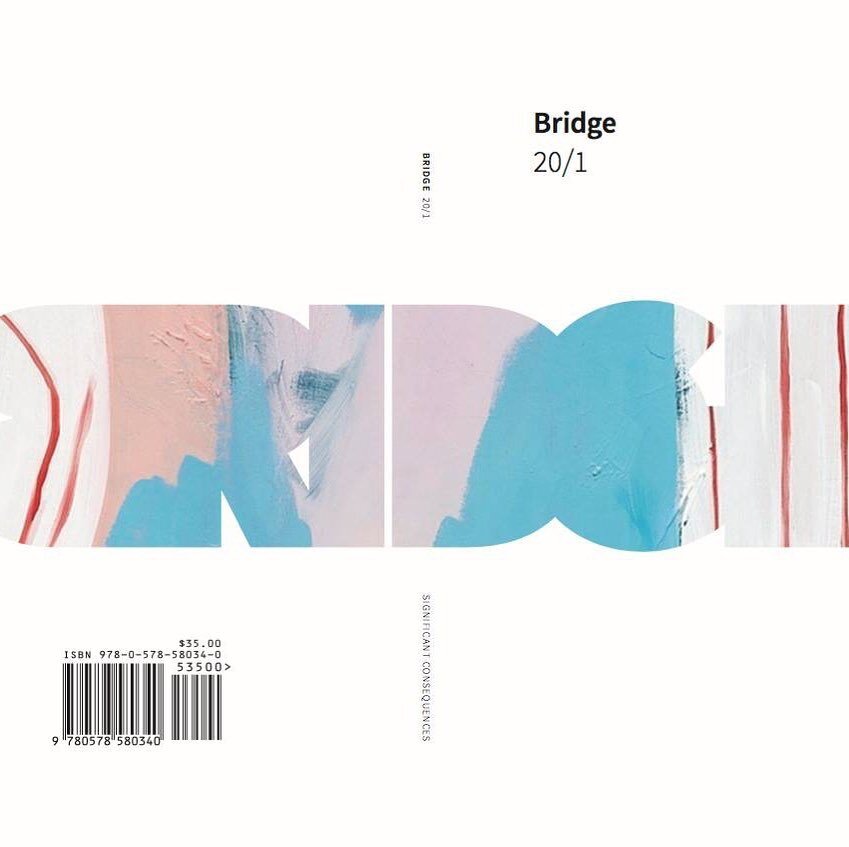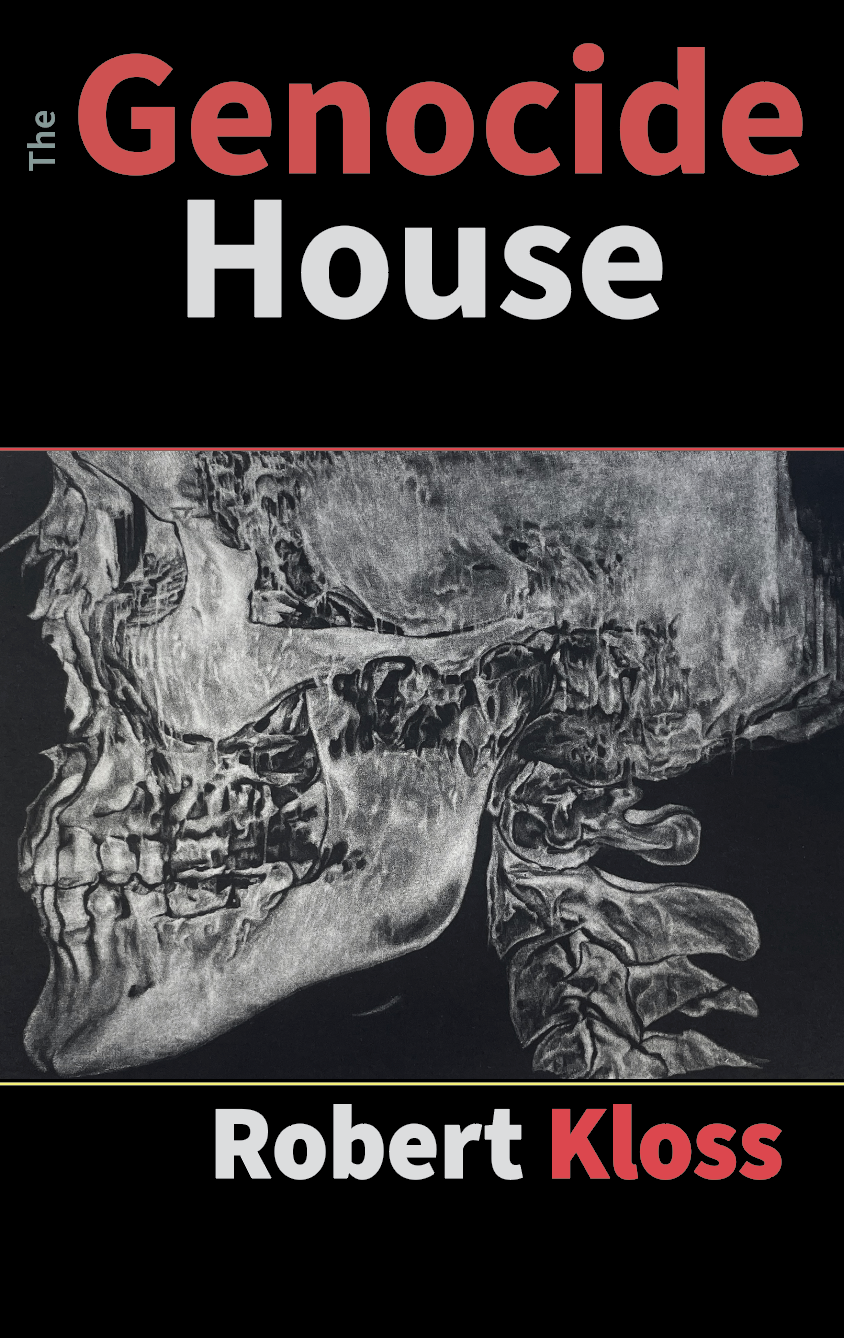BRIDGE BOOKS: “The Genocide House” by Robert Kloss
AVAILABLE NOW — CLICK HERE TO ORDER
COVER IMAGE BY DEVON STACKONIS
The Genocide House by Robert Kloss
In The Genocide House—the American—maelstrom—The world—delirium—
Villages—slaughtered and burned—Cities eradicated—in atomic flame—
Young women lie—yearning—in valleys—incinerated—
Dying men—dream of war—murder—Their—dreams of blood pooling—Their dreams—of bodies—posed—erotic—
Visions of flame—Clouds atomic—rising and swallowing—cities—Television screens—winking and shimmering—visions of flame—clouds—atomic—
Aged women—their recollections—sweltering—
Young men—languid—vile—Licking—devouring—Their humid minds—shimmer with—war—murder—Dreams of blood—pooling—Their bodies—posed—erotic—
Read the review by Annette LePique at Sixty Inches From Center (click image):
PRAISE FOR THE GENOCIDE HOUSE
“Book after book, Robert Kloss has been excavating the horrors of American history in inventive and fractured prose. The Genocide House is poetic and hallucinatory, a visceral novel of visionary power.”
— Babak Lakghomi, author of South
“What even is this book? Is this the tale of an American Tiresias? An Orlando? Is this book playing with the legacy of McTeague? Sometimes an alternate history, sometimes an exploration of a substructure–American historical fiction is simply and always horror, because American history is just a genocidal machine–sometimes an experimental novel that close-reads formal instability and its relationship to Early “America” and TV’s ever-shifting montages. Meanwhile, a rocketship is exploding while Nixon blows his brains out and someone’s listening to a Glenn Gould record and alluding to The Wasteland in such an American boozy, serial killer kind of way. “A wind of murder does come” to course through “this other you” that is the disgusting evil at the root of our national identity, and as these murderous, fucked up Claras run rampant through history, you’re constantly asked and asking, “Are you speaking – or am I – ”
— Olivia Cronk, author of Gwenda, Rodney
"This volatile, strange novel about the founding of this country, written in an anachronistic space where modernism, the 17th century, pop music and gothic tales all come together, moves at a breakneck speed through centuries. It showcases Kloss’s formal obsession: a style that manages to be both baroque and extremely speedy, a page-turner. It might be Kloss’s best novel yet, adding an inventive, powerful book to a growing authorship that has flourished outside the mainstream channels of US literature. Recommended to anyone who wants their prose as beautiful as poetry, as urgent as a telegraphed warning."
— Johannes Göransson, author of Summer
“Robert Kloss is one of the greatest living American writers--unflinching and visionary and utterly unique. In four previous novels, Kloss has charted the depths of outrage and suffering, and with The Genocide House, he has given us a masterpiece that captures the vastness of the American nightmare. This novel is a black and brilliant jewel, with each slashing sentence carving facets one darker and sharper than the next. As important a book as will be released this year, The Genocide House deserves to stand alongside novels like Pierre Guyotat’s Tomb for 500,000 Soliders as a masterwork of brutalty.”
— Kent Wascom, author of The Great State of West Florida



